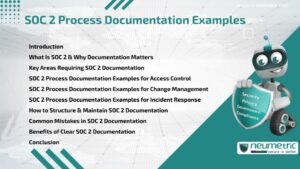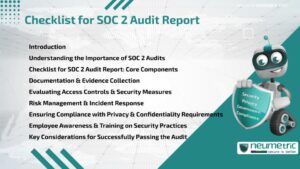Table of Contents
ToggleIntroduction to Cybersecurity Law Consulting
Cybersecurity law consulting encompasses the professional services provided by experts well-versed in the legal & technical aspects of cybersecurity. These consultants offer strategic guidance to businesses, helping them understand & comply with the ever-evolving regulations & laws governing cybersecurity. Their expertise spans a wide range of areas, including data protection, privacy laws, compliance frameworks, risk assessment, incident response & more.
Cybersecurity law consultants serve as trusted advisors, assisting organisations in interpreting complex legal requirements, implementing robust security measures & mitigating potential risks associated with data breaches or regulatory non-compliance. The proliferation of cyberattacks, coupled with stringent regulatory frameworks like GDPR, CCPA & various sector-specific regulations, has amplified the need for expert guidance in ensuring compliance & fortifying cyber defences.
Businesses are entrusted with sensitive consumer data & the mishandling or compromise of this information can result in severe legal repercussions, financial losses & irreparable damage to their reputation. Cybersecurity law consultants assist in safeguarding against these risks, guiding organisations to proactively address vulnerabilities & comply with the ever-changing legal landscape.
The Evolving Landscape of Cybersecurity Laws
Understanding the historical context, global variations & recent trends in cybersecurity laws is crucial in comprehending the complex & ever-changing regulatory landscape that businesses face today.
Historical Context: Milestones in Cybersecurity Legislation
The journey of cybersecurity legislation has been marked by pivotal milestones that reflect the evolving nature of digital threats & the need for regulatory frameworks to protect sensitive information. Over the years, key moments have shaped the development of cybersecurity laws:
- Early Legislation: The foundation was laid with the Computer Fraud & Abuse Act [CFAA] in 1986 in the United States [US], focusing on combating unauthorised access to computer systems.
- Data Protection Acts: European countries led the way with data protection laws like the Data Protection Directive in 1995, providing guidelines for the processing & movement of personal data within the European Union [EU].
- Global Impact: The proliferation of the internet led to more comprehensive laws, such as the California Consumer Privacy Act [CCPA] in 2018 & the General Data Protection Regulation [GDPR] in 2018, significantly impacting businesses worldwide.
- Sector-Specific Regulations: Various industries, like healthcare (HIPAA), finance (GLBA) & telecommunications (Telecommunications Act), have sector-specific regulations mandating cybersecurity measures.
Global Perspectives: Variances in Cybersecurity Laws Across Regions
Cybersecurity laws exhibit significant variations across different regions, reflecting diverse cultural, political & economic factors. These disparities pose challenges for businesses operating in multiple jurisdictions:
- European Union [EU]: GDPR stands as a stringent & far-reaching regulation, emphasising data privacy, user consent & hefty penalties for non-compliance.
- United States: The U.S. lacks a comprehensive federal data privacy law, leading to a patchwork of state laws like CCPA in California & others in progress in various states.
- Asia-Pacific: Countries like Japan, South Korea & India are actively shaping data protection laws to align with global standards, each with its unique approach & compliance requirements.
- Emerging Economies: Developing nations are formulating cybersecurity laws to address their unique challenges, often seeking to balance economic growth with data protection & security concerns.
Recent Developments & Trends in Cybersecurity Regulations
The landscape of cybersecurity regulations continues to evolve rapidly, influenced by technological advancements & changing threat landscapes. Recent trends & developments include:
- Expansion of Privacy Rights: Efforts to enhance individuals’ rights over their data, demonstrated by proposed amendments to existing laws & the introduction of new privacy-centric regulations.
- Focus on Cross-Border Data Transfers: Regulations emphasising secure cross-border data transfers, impacting businesses that operate internationally & necessitating robust data protection measures.
- Cybersecurity Frameworks for Critical Infrastructure: Heightened emphasis on securing critical infrastructure sectors like energy, healthcare & transportation through specific cybersecurity regulations & frameworks.
- Increased Regulatory Enforcement: Regulatory bodies worldwide are actively enforcing existing regulations, imposing substantial fines for non-compliance, compelling businesses to prioritise cybersecurity measures.
Understanding these historical milestones, global disparities & recent trends provides businesses with invaluable insights to navigate the intricate web of cybersecurity laws, enabling them to adapt strategies that comply with diverse regulatory requirements while safeguarding sensitive information effectively.
The Role of Cybersecurity Law Consultants
Cybersecurity law consultants serve as the guiding compass for businesses navigating the intricate maze of cybersecurity laws & regulations. Their roles encompass a wide array of essential functions:
- Navigating Legal Complexities: Consultants interpret & translate complex legal jargon into actionable strategies, ensuring that businesses comprehend their compliance obligations within the regulatory framework.
- Risk Assessment & Mitigation: They conduct thorough risk assessments, identifying vulnerabilities & formulating robust mitigation strategies to safeguard against potential cyber threats & legal repercussions.
- Compliance Guidance: Consultants assist businesses in aligning their operations with applicable laws & regulations, ensuring adherence to data protection standards & privacy requirements.
- Strategic Planning: Consultants offer strategic advice, aiding businesses in devising long-term cybersecurity strategies tailored to their unique needs & industry-specific challenges.
- Incident Response: In the event of a data breach or cybersecurity incident, consultants provide rapid response guidance, minimising the impact & facilitating compliance with breach notification requirements.
Responsibilities & Expertise Required
The responsibilities of cybersecurity law consultants demand a comprehensive skill set & expertise in various domains:
- Legal Acumen: In-depth knowledge of cybersecurity laws, data protection regulations & compliance requirements is fundamental for effective guidance.
- Technical Proficiency: A strong understanding of cybersecurity technologies, risks & protocols is crucial for assessing vulnerabilities & recommending appropriate security measures.
- Communication Skills: Consultants must communicate complex legal & technical concepts in a clear, understandable manner to stakeholders with varying levels of expertise.
- Analytical Thinking: The ability to analyse intricate situations, foresee potential risks & devise proactive solutions is imperative in the rapidly evolving cybersecurity landscape.
- Adaptability & Continuous Learning: Given the dynamic nature of cyber threats & regulations, consultants must stay updated with the latest trends, laws & technologies to provide relevant & up-to-date advice.
The role of cybersecurity law consultants extends far beyond merely providing guidance; it involves being strategic partners in a business’s cybersecurity journey. Their expertise & guidance are instrumental in fortifying defences, ensuring compliance & mitigating risks in an ever-evolving digital landscape.
Key Components of Effective Cybersecurity Law Strategies
Developing robust cybersecurity law strategies involves a multifaceted approach, encompassing various crucial components to safeguard sensitive data, ensure compliance & respond effectively to potential threats. Let’s explore these key components in detail:
- Risk Assessment: Conducting a comprehensive risk assessment is the cornerstone of any effective cybersecurity strategy. It involves identifying potential vulnerabilities, evaluating threats & assessing the impact of potential breaches. Through risk assessments, businesses gain insights into areas that require immediate attention & prioritise mitigation efforts.
- Compliance Measures: Compliance forms the backbone of cybersecurity law strategies. Businesses need to understand & adhere to the multitude of regulations & standards pertinent to their industry & geographical location. Implementing measures to meet compliance requirements ensures legal adherence & mitigates the risk of penalties due to non-compliance.
Data Privacy & Protection Frameworks
- Data Privacy Regulations: With the increasing focus on data privacy, businesses must establish robust frameworks aligned with data protection regulations like GDPR, CCPA or industry-specific standards. These frameworks encompass data encryption, access controls, secure storage practices & mechanisms for obtaining & managing user consent.
- Data Protection Measures: Implementing effective data protection measures involves a combination of encryption protocols, secure storage solutions & data minimization practices. Ensuring that sensitive information is adequately protected, both in transit & at rest, is crucial to prevent unauthorised access & data breaches.
Incident Response & Crisis Management Plans
- Incident Response: Despite preventive measures, incidents may occur. Establishing a clear incident response plan delineates the steps to be taken in the event of a cybersecurity breach. This includes immediate actions to contain the breach, assess the impact, notify relevant stakeholders & initiate recovery procedures.
- Crisis Management: Crisis management plans outline the strategies for managing the aftermath of a cybersecurity incident. This involves addressing public relations concerns, legal obligations, coordinating with law enforcement if necessary & restoring operations while minimising reputational damage.
Incorporating these key components into cybersecurity law strategies empowers businesses to proactively mitigate risks, protect sensitive data & effectively respond to cyber threats. By prioritising risk assessment, compliance, data protection frameworks, incident response & crisis management, organisations can bolster their cybersecurity posture & safeguard against potential legal & operational disruptions. These components work in tandem to create a resilient & adaptive cybersecurity framework in the face of evolving threats & regulatory landscapes.
Navigating Challenges in Cybersecurity Law
Navigating the realm of cybersecurity law presents multifaceted challenges for businesses, especially in a landscape characterised by dynamic regulations, cross-border complexities & the delicate balance between security needs & operational efficiency.
Compliance Challenges in a Dynamic Regulatory Environment
- Ever-evolving Regulations: Keeping pace with the evolving landscape of cybersecurity laws & regulations can be daunting. Businesses must continuously monitor changes, updates & new mandates to ensure ongoing compliance. The challenge lies in interpreting these regulations accurately & implementing necessary changes swiftly & effectively.
- Fragmented Regulatory Landscape: Operating in multiple jurisdictions means dealing with a patchwork of regional, national & international laws. Ensuring compliance across diverse regulatory frameworks requires a nuanced understanding of each jurisdiction’s specific requirements, posing a significant compliance challenge.
Addressing complexities in Cross-border Data Regulations
- Data Localisation & Sovereignty: Many countries impose data localisation requirements, mandating that data be stored within the country’s borders. Adhering to such regulations while operating globally can be intricate & may conflict with the need for centralised data storage & accessibility.
- Cross-border Data Transfers: Transferring data across borders involves complexities, especially when data protection laws in different jurisdictions vary significantly. Ensuring compliance during data transfers while safeguarding data privacy remains a considerable challenge for multinational businesses.
Balancing Security Needs with Business Operations
- Impact on Business Processes: Striking a balance between stringent cybersecurity measures & seamless business operations is challenging. Implementing robust security measures often introduces complexities that may impede workflow efficiency or user experience, requiring careful calibration to mitigate disruptions.
- Resource Allocation: Allocating resources, both in terms of finances & human capital, to cybersecurity initiatives while simultaneously meeting operational demands can be a juggling act. Ensuring adequate investment in cybersecurity without compromising other critical business areas is a perpetual challenge.
Effectively navigating these challenges in the realm of cybersecurity law demands a proactive & strategic approach. Businesses need to foster a culture of compliance, invest in technology that facilitates adherence to cross-border regulations & strike a delicate balance between stringent security measures & operational agility. Collaborating with cybersecurity law consultants who specialise in these areas can significantly aid businesses in overcoming these challenges, ensuring robust compliance & cybersecurity resilience in an ever-evolving regulatory landscape.
Advice & Best Practices for Businesses
Establishing a resilient cybersecurity law framework, effectively collaborating with cybersecurity law consultants & staying ahead of regulatory changes are critical elements for businesses seeking to fortify their cybersecurity posture. Here are some advice & best practices to navigate these aspects:
Steps to Establish a Strong Cybersecurity Law Framework
- Assess & Prioritise Risks: Begin by conducting a comprehensive risk assessment to identify vulnerabilities, assess potential threats & prioritise areas that require immediate attention.
- Compliance Mapping: Understand the regulatory landscape applicable to your business. Create a compliance roadmap outlining the specific regulations & standards relevant to your industry & geographical presence.
- Develop Robust Policies & Procedures: Formulate clear & concise cybersecurity policies aligned with regulatory requirements. These policies should encompass data privacy, incident response, access controls & employee training.
- Implement Security Measures: Invest in technologies & solutions that align with your cybersecurity goals. This includes encryption tools, firewalls, intrusion detection systems & robust authentication methods.
- Regular Training & Awareness Programs: Educate employees about cybersecurity best practices, data handling procedures & the importance of compliance. Regular training sessions help foster a security-conscious culture within the organisation.
Collaborating with Cybersecurity Law Consultants Effectively
- Select the Right Consultant: Choose cybersecurity law consultants with expertise aligned with your business needs. Look for consultants experienced in your industry & well-versed in the regulatory landscape pertinent to your operations.
- Establish Clear Communication: Maintain open & transparent communication channels with consultants. Clearly articulate your business goals, challenges & expectations to ensure alignment in strategies & objectives.
- Foster a Collaborative Partnership: View cybersecurity consultants as strategic partners rather than external entities. Collaborate closely with them to leverage their expertise in crafting & implementing robust cybersecurity strategies.
- Regular Assessment & Feedback: Periodically assess the effectiveness of the consultant’s strategies. Provide feedback & engage in discussions to refine & adapt approaches based on evolving threats & regulatory changes.
Mitigating Risks & Staying Ahead of Regulatory Changes
- Continuous Monitoring & Adaptation: Implement mechanisms for continuous monitoring of cybersecurity measures. Stay updated on emerging threats, technological advancements & changes in regulations to adapt swiftly.
- Engage in Industry Networks & Information Sharing: Participate in industry forums, share experiences & collaborate with peers to stay up-to-date with emerging trends, best practices & regulatory updates.
- Engage Legal Counsel: Work closely with legal counsel specialising in cybersecurity to interpret regulations accurately, navigate legal complexities & ensure compliance in your operations.
By adhering to these best practices, businesses can establish a robust cybersecurity law framework, leverage the expertise of cybersecurity law consultants effectively & proactively mitigate risks while staying compliant amidst the ever-evolving regulatory landscape. These measures foster a proactive & resilient cybersecurity posture, safeguarding businesses against potential threats & legal implications.
Conclusion
Cybersecurity law consultants serve as trusted advisors, bridging the gap between legal intricacies & technical complexities in the ever-evolving cybersecurity landscape. Their role extends beyond mere compliance; they are strategic partners aiding businesses in fortifying their defences, understanding regulatory obligations & mitigating risks. Businesses must foster a culture that prioritises cybersecurity, integrates compliance into their DNA & views it as a continuous journey rather than a one-time task.
By fostering a proactive stance towards cybersecurity compliance, businesses not only protect their assets & data but also build trust among stakeholders, enhance their reputation & mitigate the potential fallout of cyber incidents.
In closing, the landscape of cybersecurity law is ever-evolving & its importance cannot be overstated in safeguarding businesses against modern-day threats. Embracing the expertise of cybersecurity law consultants & proactively prioritising compliance measures are pivotal steps in ensuring a secure & resilient future in the digital domain.
FAQ
What are the primary responsibilities of cybersecurity law consultants in assisting businesses?
Cybersecurity law consultants play a vital role in guiding businesses through the complexities of cybersecurity regulations. Their responsibilities include interpreting & translating legal jargon into actionable strategies, conducting risk assessments to identify vulnerabilities, providing compliance guidance to align with diverse regulations & aiding in incident response planning in the event of a breach. They serve as strategic advisors, helping organisations fortify their defences & comply with evolving laws in the digital landscape.
How can businesses effectively navigate the challenges posed by diverse cybersecurity regulations in different regions?
Navigating the varied regulatory landscapes across different regions requires a strategic approach. Businesses should conduct a thorough compliance mapping, understanding the specific regulations pertinent to their industry & geographical presence. Establishing clear policies aligned with data privacy regulations, continuous monitoring & investing in technologies that facilitate compliance across borders are essential steps. Additionally, collaborating with cybersecurity law consultants who possess expertise in diverse regulatory frameworks can greatly assist in ensuring adherence to these laws.
What steps can businesses take to establish a robust cybersecurity law framework & why is it crucial?
Establishing a robust cybersecurity law framework involves several essential steps. Businesses need to conduct comprehensive risk assessments to identify vulnerabilities, prioritise risks & comply with regulatory requirements. Developing clear policies & procedures aligned with data privacy regulations, implementing effective security measures, providing regular employee training & collaborating with cybersecurity law consultants are crucial. Such a framework is vital to safeguard sensitive data, ensure legal adherence & protect against potential cyber threats in an ever-evolving digital environment.





